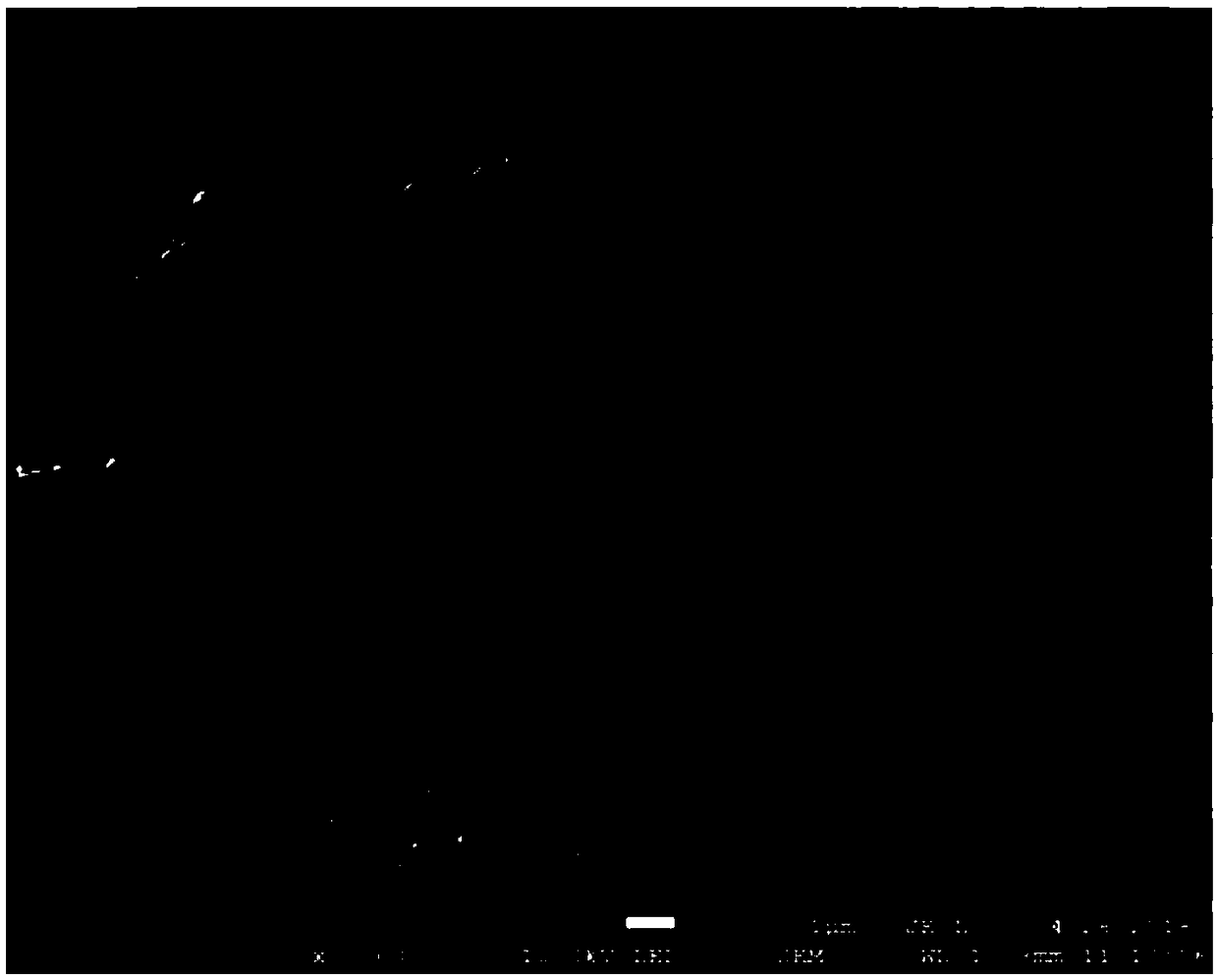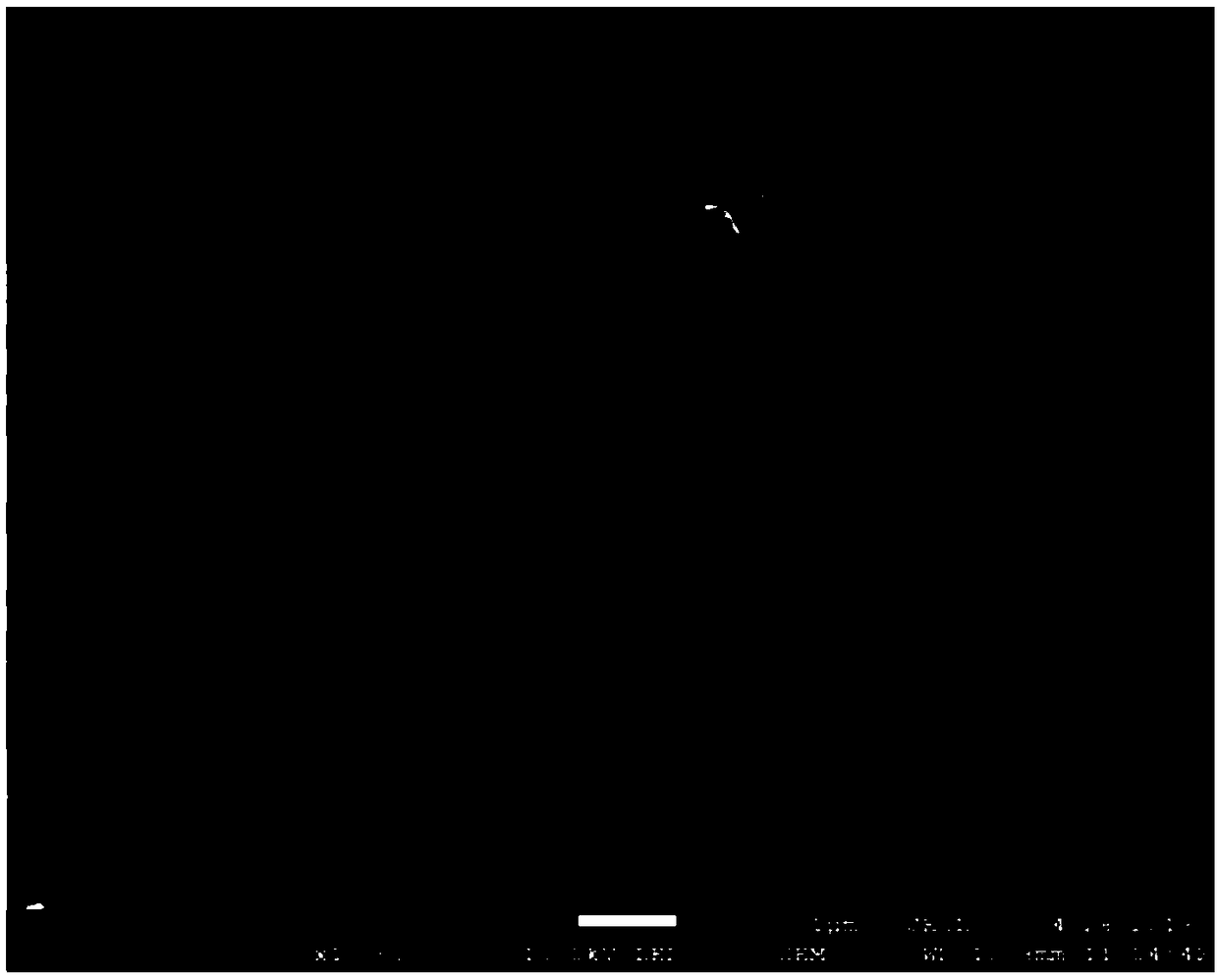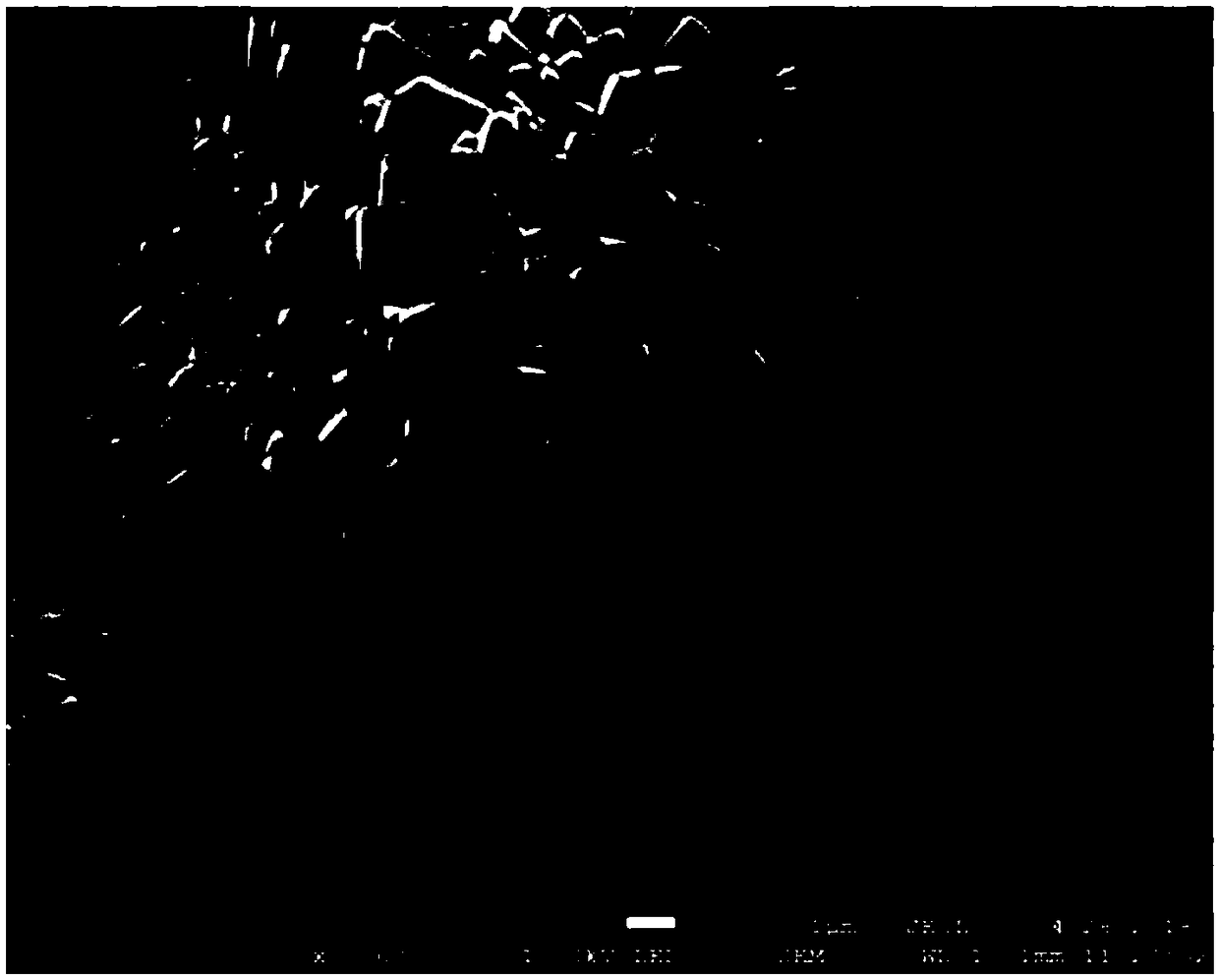Simple preparation method of self-assembled micro-nano structural BiVO4 microspheres
A technology of micro-nano structure and self-assembly, applied in the field of photocatalysis, to achieve the effect of simple and easy-to-control preparation process
- Summary
- Abstract
- Description
- Claims
- Application Information
AI Technical Summary
Problems solved by technology
Method used
Image
Examples
Embodiment 1
[0031] figure 1 and figure 2 For the BiVO prepared in Example 1 4 The SEM image of microspheres, using the BiVO prepared in Example 1 4 The microspheres are composed of irregular polyhedrons, uniformly dispersed and large in size.
[0032] 2mmol (0.97g) Bi(NO 3 ) 3 ·5H 2 O was added to 30mLHAc (purity 99.5%), stirred until completely dissolved, as solution A; 2mmol (0.368g) of Na 3 VO 4 Add to 5mL of deionized water, stir until completely dissolved, then add 30mL of HAc (purity 99.5%), continue to stir for 30min, as solution B; add solution B dropwise to solution A, and continue to stir for 30min; mix The final solution C was transferred to a 100mL reactor and subjected to hydrothermal reaction at 140°C for 4h; after the reactor was cooled to room temperature, the reaction product was centrifuged and washed three times with deionized water and absolute ethanol; The obtained powder was dried in an oven at 60°C for 6 hours; the dried powder was placed in a muffle furnac...
Embodiment 2
[0034] image 3 and Figure 4 For the BiVO prepared in Example 2 4 The SEM image of microspheres, using the BiVO prepared in Example 2 4 The surface of the microspheres has a quadrangular pyramid structure, which is uniformly dispersed and has large particles.
[0035] 2mmol (0.97g) Bi(NO 3 ) 3 ·5H 2 O was added to 30mLHAc (purity 99.5%), stirred until completely dissolved, as solution A; 2mmol (0.368g) of Na 3 VO 4Add to 5mL of deionized water, stir until completely dissolved, then add 30mL of HAc (purity 99.5%), continue to stir for 30min, as solution B; add solution B dropwise to solution A, and continue to stir for 30min; mix The final solution C was transferred to a 100mL reactor and subjected to hydrothermal reaction at 140°C for 6h; after the reactor was cooled to room temperature, the reaction product was centrifuged and washed three times with deionized water and absolute ethanol; The obtained powder was dried in an oven at 60°C for 6 hours; the dried powder w...
Embodiment 3
[0037] Figure 5 and Figure 6 For the BiVO prepared in Example 3 4 The SEM image of microspheres, using the BiVO prepared in Example 3 4 The surface of the microspheres has a quadrangular pyramid structure, which is uniformly dispersed and has large particles.
[0038] 2mmol (0.97g) Bi(NO 3 ) 3 ·5H 2 O was added to 30mLHAc (purity 99.5%), stirred until completely dissolved, as solution A; 2mmol (0.368g) of Na 3 VO 4 Add to 5mL of deionized water, stir until completely dissolved, then add 30mL of HAc (purity 99.5%), continue to stir for 30min, as solution B; add solution B dropwise to solution A, and continue to stir for 30min; mix The final solution C was transferred to a 100mL reactor and subjected to hydrothermal reaction at 140°C for 8h; after the reactor was cooled to room temperature, the reaction product was centrifuged and washed three times with deionized water and absolute ethanol; The obtained powder was dried in an oven at 60°C for 6 hours; the dried powder...
PUM
 Login to View More
Login to View More Abstract
Description
Claims
Application Information
 Login to View More
Login to View More - R&D
- Intellectual Property
- Life Sciences
- Materials
- Tech Scout
- Unparalleled Data Quality
- Higher Quality Content
- 60% Fewer Hallucinations
Browse by: Latest US Patents, China's latest patents, Technical Efficacy Thesaurus, Application Domain, Technology Topic, Popular Technical Reports.
© 2025 PatSnap. All rights reserved.Legal|Privacy policy|Modern Slavery Act Transparency Statement|Sitemap|About US| Contact US: help@patsnap.com



